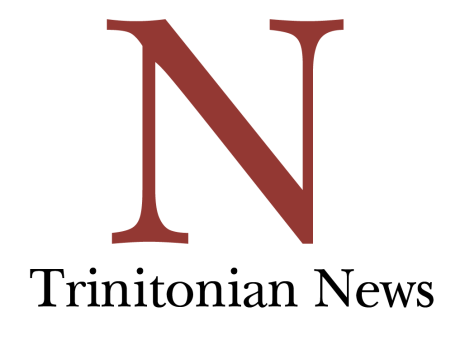Students gathered in the Fiesta Room last Tuesday to discuss previous diversity-related events and the impact of Milo Yiannopoulos’ lecture on campus. The event titled “Diversity Post-Milo: Looking Back to Move Forward” was sponsored by a committee of organizations including: the Trinity Diversity Connection, the Black Student Union, Black Male Leadership Initiative and the Trinity Progressives.
“The role of the committee is to sum up the progress of spreading diversity and political dialogues into an annual report into all of those events,” said Benjamin Collinger, vice-president of the Trinity Diversity Connection.
The committee is working to create a report of all the diversity events that will assess attendance, money spent, articles published in the Trinitonian and testimonials from students who attended.
“Basically we’re looking back and assessing what we can do in the future to make our dialogues better,” Collinger said.
In small group discussions, students spoke of previous events and their reaction to Yiannopoulos’ visit.
For Akil Udawala, senior economics major, Yiannopoulos’ lecture did not change opinions.
“The whole point of Milo’s speech was just to offend people. “˜How much offensive shit can I say in the next 30 minutes?’ That isn’t productive. No one went there and had their mind changed. Everyone who was a Trump supporter and agreed with what he said left patting themselves on the back. If you weren’t, you left and said “˜Man, this guy sucks,'” Udawala said.
According to Nathan Rothenbaum, a senior anthropology and human communication major, Yiannopoulos’ talk had no central point.
“Milo was just meandering about. He just went on tangents and was like “˜I need to talk about cultural appropriation, and here are all the cool things that I’m going to do on my tour,'” Rothenbaum said.
Udawala thinks future conservative speakers could provide new viewpoints on campus.
“I feel like it could do a lot on campus to have different conservative speakers give talks and have an actual dialogue unlike what happened with Yiannopoulos,” Udawala said.
Yiannopoulos’ visit stood out to Cristian Vargas, a sophomore biology major with a global health minor.
“The one productive thing about the Milo thing was that it was a wakeup call. It was so in your face. He was someone who took the other side,” Vargas said.
Udwala and Rothenbaum were alarmed by the number of Trump supporters present at the lecture.
“The whole thing was basically a Trump rally. It was like all the people who were upset that Trump hasn’t visited San Antonio yet,” Udwala said.
Rothenbaum recalled a number of Trump supporters clapping and chanting during the lecture.
“Milo would make some point and all the students would be like, “˜Wow this is really offensive,’ and then all these off-campus people started clapping. At one point the crowd started chanting “˜Trump,'” Rothenbaum said.
Udawala recommended that debates occur on contentious topics next year.
“In the future, public debates would be cool. That allows students to get involved from Trinity Progressives and Tigers for Liberty. You could have people on the debate team pick sides and have people on campus vote on topics that people find contentious. There could be two sides discussed in a civil manner. That way people could have a chance to have their mind changed or expanded on certain issues,” Udwala said.
Nicholas Santulli, co-president of the Trinity Progressives, asked the panel what they considered to be most valuable about diversity events this year?
For Udawala, the Diversity Dialogue on immigration stood out.
“The panel on immigration was cool. That was one of my favorites. It was very informative, and it didn’t turn into a mess. It was more of a lecture, and I think that’s a really decent format. Some of the more discussion events are non-productive,” Udawala said.
Vargas recalled the Prejudice Today forum that discussed Ahmed Mohammed’s arrest as impactful.
“The Prejudice Today event was the one that stood out to me as a long-standing event. People wrote about it in the Trinitonian and it really got people fired up,” Vargas said.
Ella Oduguwa, secretary of the Trinity Diversity Connection, said that in the future, events should have more speakers on different sides of issues.
“This event definitely opened my eyes to a lot of different viewpoint,” said Oduguwa. “We talked a lot about the Milo discussion and Milo’s talk. We think that it would be a really good idea to have people come to talks about differing opinions.”







